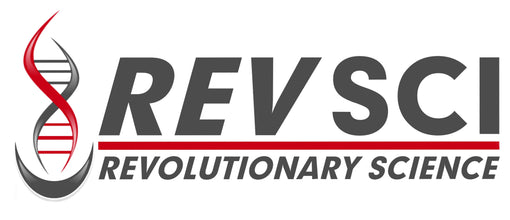The Importance of Autoclave Sterilization
In laboratory, medical, and industrial settings, sterilization is crucial for preventing contamination and ensuring safety. Autoclave sterilization remains the gold standard for eliminating bacteria, viruses, fungi, and spores. But did you know that sterilization laws vary by state? Understanding these regulations is essential, especially for healthcare, tattooing, and cosmetology businesses. This guide will explore autoclave sterilization, state-specific statutes, and best practices to ensure compliance and safety.

Understanding Autoclave Sterilization
Autoclave sterilization uses pressurized steam to destroy microorganisms on laboratory instruments, medical tools, and other equipment. This process is widely used in:
-
Healthcare facilities (hospitals, dental clinics, veterinary clinics)
-
Laboratories (biotech, microbiology, research labs)
-
Tattoo parlors and beauty salons (for sterilizing reusable tools)
-
Food safety laboratories (ensuring equipment is free from contaminants)
-
Pharmaceutical production (maintaining sterile environments for drug manufacturing)
What is the Temperature of an Autoclave?
To effectively sterilize materials, an autoclave must reach a temperature of 121°C to 134°C (250°F to 273°F). The exact temperature depends on the type of material and sterilization cycle used.
Which Instruments Can Be Sterilized by Autoclave?
Autoclaves can sterilize a wide range of instruments, including:
-
Surgical instruments
-
Laboratory glassware
-
Dental tools
-
Microbiological media
-
Veterinary equipment
-
Endoscopic tools
Items that should not be autoclaved include:
-
Heat-sensitive plastics
-
Flammable liquids
-
Certain electronics
-
Powders and oils
-
Radioactive materials
State Regulations on Autoclave Sterilization
Each U.S. state has its own sterilization statutes, especially for industries like tattooing, cosmetology, and healthcare. Revolutionary Science analyzed sterilization statutes across the U.S., revealing key insights:
States That Mandate Autoclave Use
Some states require FDA-approved autoclaves for sterilization. These include:
-
Alaska – Requires autoclaves for tattoo and piercing establishments.
-
Arkansas – Strict requirements for tattooists to use autoclaves for sterilizing needles, with regular spore testing.
-
California – Mandates autoclaves for tattoo and body piercing studios, with strict cleaning logs.
-
Florida – Requires autoclaves in medical, dental, and tattoo settings, with routine biological monitoring.
-
Texas – Mandates autoclaves in medical and laboratory settings and licensing inspections.
-
New York – Requires hospitals, research labs, and tattoo parlors to use autoclaves with documentation of sterilization logs.
-
Illinois – Enforces autoclave use for all reusable medical and cosmetic tools, with annual certification requirements.
States with Disinfection-Only Requirements
Some states allow chemical disinfection instead of autoclaves for certain industries, such as:
-
Alabama – Beauty salons must use hospital-grade disinfectants but are not required to use autoclaves.
-
Arizona – Does not mandate autoclave use for all beauty professionals but requires disinfection.
-
Nevada – Tattoo and piercing professionals must sterilize tools but can use chemical disinfection if autoclaving is unavailable.
-
Kentucky – Permits chemical sterilization in some cases, with inspections to ensure compliance.
States with Vague or Outdated Sterilization Guidelines
Some states do not specify autoclave requirements clearly, leaving it up to interpretation:
-
Mississippi – No clear guidance for autoclaves in tattooing, but general sanitation is required.
-
West Virginia – Lacks specific sterilization mandates for beauty professionals, with only broad hygiene recommendations.
-
South Dakota – Has ambiguous wording in regulations, making enforcement inconsistent.
-
Montana – Does not require autoclaves in beauty salons but suggests regular sterilization methods.
How Long Do Items Stay Sterile After Autoclaving?
Sterile items remain safe if their packaging remains intact and stored correctly. General guidelines suggest:
-
Up to 6 months if stored in sealed, sterilization-grade pouches.
-
Indefinitely if stored in sterile, airtight containers.
-
Compromised sterility if the packaging is torn or exposed to moisture.
-
Re-testing is required if stored for extended periods in fluctuating environments.
Best Practices for Autoclave Sterilization
To ensure maximum efficiency and compliance with state regulations, follow these best practices:
Choose an FDA-Registered Autoclave
Revolutionary Science offers FDA-registered autoclaves designed for precision sterilization. Their autoclaves are widely used in laboratories, biotech, and food microbiology industries.
Use the Correct Sterilization Cycle
Different materials require different sterilization cycles. For example:
-
Standard cycle: 121°C for 15-20 minutes (used for surgical instruments)
-
High-temperature cycle: 134°C for 3-4 minutes (for heat-resistant tools)
-
Liquid cycle: For sterilizing culture media and liquid solutions
-
Prion cycle: Extended cycle for decontaminating prion-infected instruments
Regularly Maintain Your Autoclave
Routine maintenance ensures your autoclave functions properly. Key steps include:
-
Cleaning chamber surfaces to remove buildup.
-
Checking water levels before each cycle.
-
Performing biological indicator tests to validate sterilization effectiveness.
-
Annual inspections to ensure compliance with FDA regulations.
Revolutionary Science: A Trusted Name in Sterilization
Founded in 1999, Revolutionary Science is an American manufacturer known for precision laboratory equipment. With products like autoclaves, incubators, and microcentrifuges, Revolutionary Science helps ensure compliance with sterilization laws while delivering cutting-edge technology.
Why Choose Revolutionary Science?
Revolutionary Science offers FDA-registered autoclaves, proudly made in the USA. Our innovative and reliable designs cater to a wide range of industries, including biotechnology, research, and medical fields, ensuring compliance and precision in sterilization processes.
Conclusion: Stay Compliant, Stay Safe
Autoclave sterilization is critical for ensuring safety and compliance in various industries. With state-specific regulations in place, choosing reliable, FDA-registered autoclaves like those from Revolutionary Science is essential. Whether you operate a tattoo parlor, research lab, or medical clinic, staying informed about sterilization best practices will protect your business and your clients.
Get the Best in Autoclave Sterilization Today!
Browse Revolutionary Science’s top-of-the-line autoclaves and sterilization equipment today. Visit our website to learn how we can help you meet sterilization standards effortlessly.

